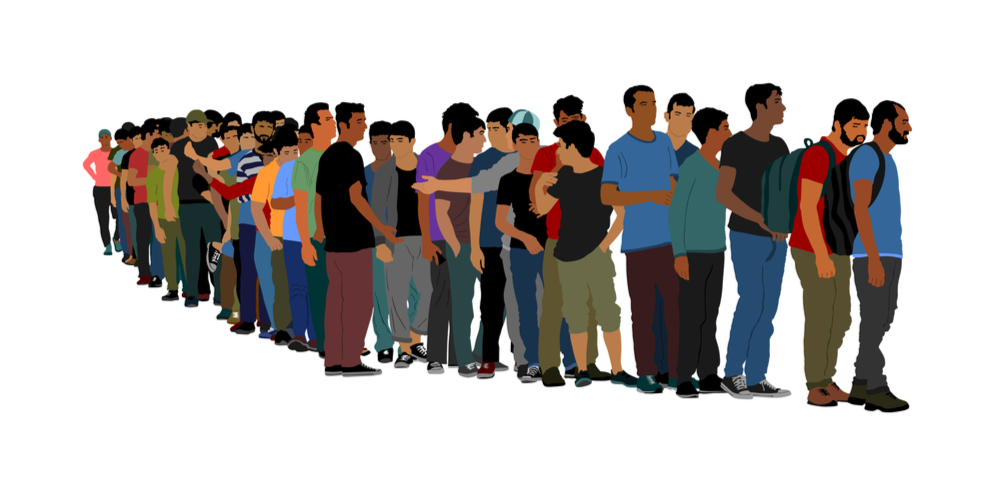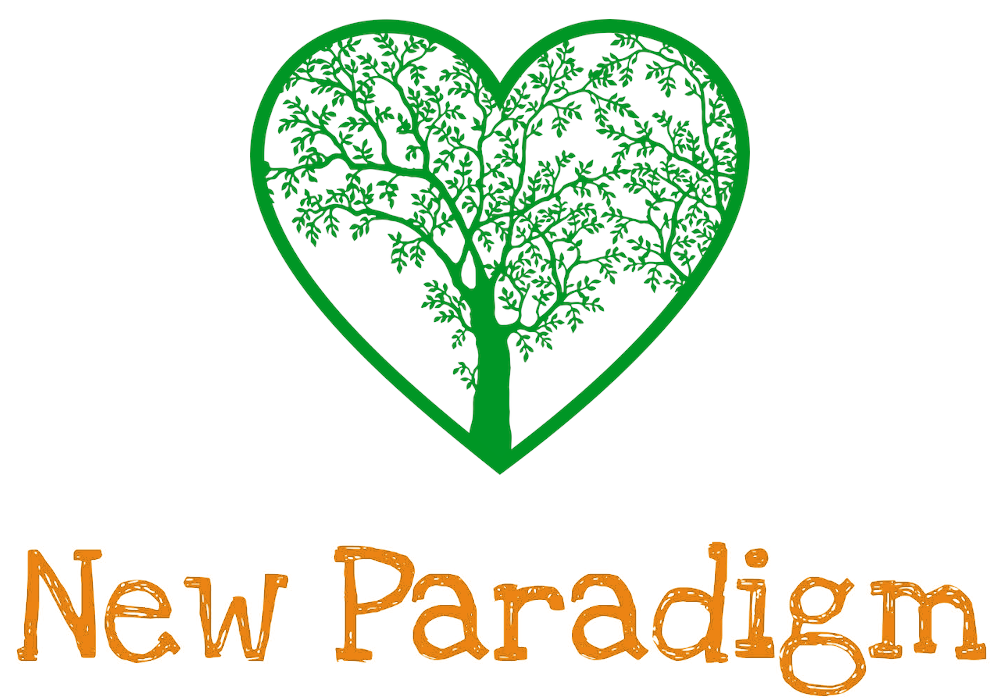
The condition the world currently finds itself in is nothing short of chaotic, catastrophic, and utterly distressing. From endless wars in virtually every corner of the globe to floods, droughts, crippling poverty and even pandemics, life has become nothing short of a daily struggle for the vast majority of people. Unfortunately, rather than searching for and finding solutions, the powers that be seem content on searching for excuses and placing blame, naming scapegoat after scapegoat as if that will provide comfort to the countless number of people barely able to scrape by. Those on the left criticize and condemn their counterparts on the right, and vice versa. And when both sides of the aisle are able to reach an agreement, rather than it being about how to move forward it is usually a matter of sliding several steps back, taking a given situation from bad to even worse.
As a result, there is an ever-growing number of people who realize that the left/right narrative isn’t where the actual truth lies. Instead of seeing things as a war between conservative and liberal doctrines, many have come to see the current situation as a war between the elites and the rest of society ─ the top ten percent against the remaining ninety percent. This argument makes a lot more sense when you really take the time to look at things from a detached perspective. After all, poverty affects both conservative and liberal alike, and corruption can be found equally among members of all political parties, regardless of affiliation.
Truth be told, this argument was compelling enough to have me championing it for many years, feeling as though once people saw this truth the changes that needed to take place could begin to unfold. However, deep down I knew that even this seemingly enlightened approach didn’t quite hit the target. It was close, but it still was just far enough from the bullseye to not fully resonate. Although it answered a great many questions, it still left too many unresolved. Therefore, there had to be another answer. Still, if the real war wasn’t left against right, or top against bottom, then where was it? After all, what directions were left to choose from?
Then, one day, I noticed how a story from the Bible kept rattling around in my mind. This may not seem like a big deal to those who don’t know me, but to those who do it would cause them to raise a brow. The simple fact of the matter is that, although I had been born and raised in the Christian tradition, I had chosen my own path later in life, leaving the Bible and its teachings far behind in order to pursue my own truth. Even so, this particular story wouldn’t leave me alone, and so I knew there was a lesson waiting to be learned, an insight begging to be discovered. The story was that of the exodus, when the Israelites left Egypt to find a new land, a promised land where they could start a new life. And it was when I took the time to recall the story in greater detail that everything finally began to make perfect sense.
The Original Exodus Story
If you don’t know the exodus story, or if your Sunday School lessons are more than a little rusty, no worries. Here is the gist of it: The Israelites were living as slaves in Egypt, laboring under harsh and thankless conditions. One day, Moses, the story’s protagonist, received a message from God telling him to lead the Israelites from Egypt to the Promised Land, a place he had chosen for them to start a new life. Needless to say, the Pharaoh of Egypt took issue with this. To help change his mind, God sent a series of plagues to Egypt, causing the Pharaoh to send the Israelites on their way. Before reaching their destination they wandered the desert, during which time they received the Ten Commandments. Finally, after much wandering, they exited the desert and entered the Promised Land. Now you’re caught up with as much as you need to know.
In order to understand the relevance of the story, it is important to note exactly which part was plaguing my mind (pun intended). It wasn’t the part where Moses challenges Pharaoh, or where God sends the plagues. Nor was it the part where the Israelites cross the Red Sea, or any other exciting aspect that makes for good movie special effects. Rather, it was the forty-year romp around the desert before heading over to the illustrious ‘Promised Land’. That was the part I simply couldn’t get out of my head, like a song that gets stuck in your mind and refuses to leave until you finally play it. So, I decided to play out the story and see if I couldn’t figure out what was going on.
In case you aren’t familiar with the specifics of the Israelites wandering the desert for forty years, here’s an overview: After Moses received the Ten Commandments from God on top of the mountain, he came back to find the people worshipping a golden calf they had constructed in his absence. Needless to say, this wasn’t a good thing, as they were supposed to be worshipping the god who had just busted them out of Egypt. The punishment for this transgression was to wander the desert for forty years. Only after that time would they be allowed to enter the Promised Land. But why exactly did they have to wander around for that period of time? It seems one hell of a long ‘time out’. Especially when you’re dealing with desert conditions.
Well, one theory I had heard a long time ago, and which stuck with me for some reason, was that this period of time would ‘allow’ the older generations to die off, and along with them the traditions of the land they had just escaped from. In other words, in order to prevent the old ways from infecting the new land, specifically idol worship, the keepers of those old ways couldn’t be allowed to finish the journey. That old way of life had to die, both figuratively and literally. Only then could the people of Israel truly begin their new life.
A Modern Take
Ok, so that makes sense, but what does that have to do with the current state of things? What does a trip through the desert have to do with war, poverty, climate change and every other issue virtually threatening the life of the planet and everyone on it? Simply put, we are living in a modern-day exodus story, one in which the ways of the older generations are at odds with the ways of the younger generations. And it is those old ways that have caused us to wander the desert in terms of the conditions we struggle with each and every day.
Racism, bigotry, sexism, religious discrimination, warmongering, greed, intolerance, and the like have not cast us into the desert as such, rather they are the very things that have actually created the desert. All of these ‘traditions’, practiced in earnest for time immemorial, have led to the state of the world as we know it. That’s when it occurred to me. The war we face isn’t between left and right, nor is it between top and bottom. The war we face is a generational one, and all you have to do is look at the ancient, white-haired presidential candidates to know that the older generations are refusing to yield one ounce of the power and money they have. They are simply refusing to let go of the old ways no matter how destructive those ways are proving to be. As a result, we are forced to wander the desert, struggling just to make it from one day to the next.
Fortunately, there is a promised land in this modern-day exodus story, one that offers an age of peace, prosperity and unity. But, just as with the original tale, it is largely the younger generations that will enter this land. Those of the older generations are still unwilling to let go of the old ways, and so they will remain in this self-created desert right to the end. After all, it is their practices that keep the desert going, so as long as the old practices remain, so too, the desert will continue to exist. However, as each successive generation moves further and further away from the traditions of the past, the desert will disappear, giving way to the promised land that awaits.
So, although the story is currently one of despair, fear and frustration, there promises to be a happy ending. Even better, this happy ending can be experienced on both the collective AND the individual level. Therefore, every person that makes the journey through the desert in their personal life, leaving behind the ways of the Old Paradigm, can in fact enter their own promised land. They can abandon the ways of cruelty, violence, conformity and control, choosing instead to embrace the ways of the New Paradigm where compassion, inclusion, diversity and a cruelty-free mindset transform the desert into a lush, vibrant landscape where life and love can once again thrive.
Before we explore that transition, from Old to New, from struggling to thriving, let’s take a look at the current state of things from this new perspective in order to gain a better understanding of why things are the way they are.
